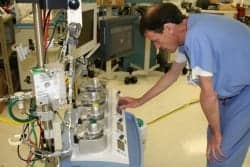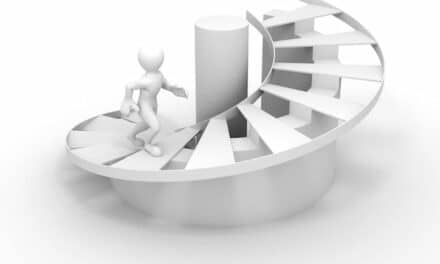By Patrick Lynch, CBET, CCE, CHTM, CPHIMS, FACCE
We’re less than eight weeks away from the new year—a time to make new promises to yourself. And to that end, I am going to share with you a number of ways that you can help others. Specifically, you can turn some of the items that no longer have any value into remarkable assets for others. (And, as an added bonus, you get to clean up some of the unused things around your HTM shop.)
It is a known phenomenon that most of the medical equipment that is used in developing countries is a couple of generations older than that which is used in the United States. And there are a lot of people trying to keep this donated equipment operational. Moreover, it is estimated that at least 50% of all equipment sent to developing countries is nonfunctional within a year. Most of it never works again.
In a developing country, the only tools and resources that a repair person has are those within their arm’s reach. After all, there is no RadioShack, Best Buy or Amazon.com to order stuff from.
Working in a biomed shop, you have lots of items that you no longer need but are critical in other countries. Here are some of them:
1. Service manuals: Every shop has bookshelf after bookshelf of service manuals, most of which are organized alphabetically by manufacturer name. And as many as one-third of them are either duplicates or for equipment that is no longer in use at the hospital. So what do you do with them? Pull them off the shelf and send them to someone who can use them. Better yet, digitize them and send them to many people who can use them.
2. Components: Who replaces components anymore? You know, those trays of resistors, capacitors, fuses, integrated circuits, transistors, and other ‘junk’ that you haven’t used in two years. Don’t throw them in the trash; send them to someone who can use them. After all, technicians in other countries are forced to try to go to the component level because of the unavailability or cost of circuit boards and subassemblies.
3. Parts: How much of your shelf space is taken up by parts for items that you no longer own? The parts are probably not very sellable, so give them to someone who needs them. Especially needed are infant incubator parts.
4. Tools: Hand tools are common in the U.S. but nonexistent overseas. Go through all of your tool kits, drawers and workbenches and collect all the old, unused, duplicate, or damaged sockets, screwdrivers, drill bits, files, razor blades, sandpaper, emery cloth, knives, wrenches, and test leads. Heck, you can even go to a store like Harbor Freight or Northern Tools and buy their bargain-basement-priced stuff new.
5. Cables: Equipment doesn’t work without accessories. And accessories wear out. Collect any and all working accessories for medical devices. Especially needed are patient cables and lead wires. Don’t worry about whether they are shielded or not— there isn’t enough electricity to interfere with them.
6. Textbooks: We all went to school—and we all have textbooks that we kept because we thought we would need to refer to them one day. But we never take them off of the shelf. So give them to someone who can use them. Spanish language textbooks are a plus.
7. USB and other storage devices: Computers exist overseas, but multiple people share them. Therefore, it is necessary for each person to have his or her own thumb drive. That way, they can carry their personal files, manuals, and other computer paraphernalia. So if you have any thumb drives of any size, send them to developing countries. There cannot be too many of them.
8. DVDs and CDs: In addition to manuals and textbooks, there are lots of useful material on digital media. When you no longer need them, give them to developing countries.
9. Test equipment: Do you have any analog voltmeters? Old ECG simulators? Safety analyzers? Oxygen analyzers? Pressure testers? Phantoms? They are all useful to someone else, and I’ll bet that you have long since purchased newer models.
10. Miscellaneous items: Batteries, electrical cords, scrubs, gloves, flashlights, personal protective gear, hard hats, printer paper, miscellaneous hardware, screws, nuts, bolts, solderless terminals, heat shrink, electrical outlets, cable ties, electrical tape, WD-40, and wire nuts are all useful to people in developing countries.
Remember: Everything you don’t need, they do. Additionally, you can give your email address to act as a mentor or consultant for less fortunate or knowledgeable biomeds. And if you can get your local hospital or biomed association to donate shipping costs to a charitable organization, or directly to the country, that would be an added benefit.
Patrick Lynch is a biomedical manager with more than 40 years’ experience. Questions and comments can be directed to [email protected].





